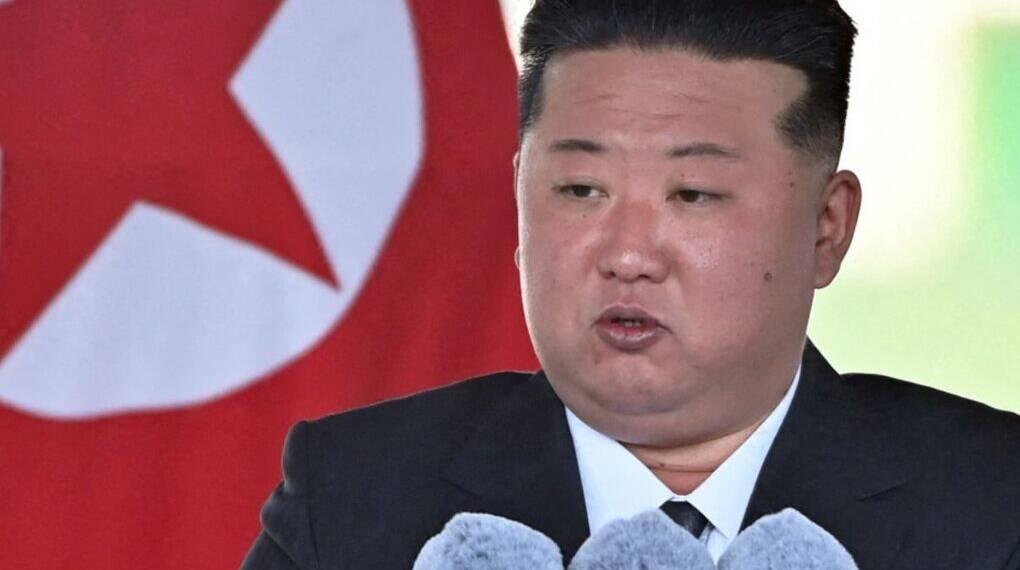North Korea has vehemently condemned the upcoming joint military exercises planned by South Korea and the United States, branding them a “direct military provocation” and warning of decisive counteractions.
This development comes amid cautious signs of thawing tensions on the Korean Peninsula following the election of South Korea’s new liberal president, Lee Jae Myung, who has sought to reduce hostility toward Pyongyang.
In a strongly worded statement released on Monday via the North’s official KCNA news agency, North Korea’s Defence Minister No Kwang Chol reaffirmed Pyongyang’s determination to protect its national security against what it calls a real and dangerous threat posed by the 11-day U.S.-South Korea drills scheduled to commence on August 18.
No described the exercises as “war drills” under the pretext of defense, accusing the allies of pursuing confrontational policies that only escalate hostility and undermine regional stability.
“The armed forces of the DPRK have an absolute mission to defend our national sovereignty and security against these large-scale drills by the United States and South Korea,” No said. “We will cope with these provocative war drills with thoroughgoing and resolute counteraction and strictly exercise our sovereign rights.”
The acronym DPRK refers to the Democratic People’s Republic of Korea, North Korea’s official state name.
Historical Context and Recent Developments
North Korea has a long history of vocally opposing joint military exercises conducted by South Korea and the United States, which Pyongyang frequently labels as rehearsals for invasion or nuclear war. Over the years, these drills have sparked sharp responses from North Korea, including missile launches, artillery drills, and fiery rhetoric threatening retaliation.
South Korea and the U.S. say the annual exercises are defensive, aimed at testing command and control structures, troop mobilization, and readiness against the heightened nuclear threat posed by North Korea. This year’s drills are part of an upgraded security strategy to deter North Korea’s increasingly sophisticated nuclear weapons program.
However, recognizing the delicate political environment, the allies announced last week that a major part of the field exercise would be postponed to next month due to adverse weather conditions. Observers widely interpreted this postponement as an effort by President Lee’s administration to ease tensions with Pyongyang, given Lee’s more conciliatory stance compared to his predecessor.
Signs of Thawing Despite Hostility
Relations between the two Koreas have reached some of the lowest points in recent years, strained by North Korea’s rapid nuclear weapons advancements and its growing military ties with Russia. Despite this, Pyongyang has shown subtle signs of reciprocating Seoul’s recent efforts to reduce tensions.
For instance, South Korea announced on Saturday that it had detected North Korean military personnel removing loudspeakers installed along the border.
These speakers, used for decades to blast propaganda messages back and forth across the Demilitarized Zone (DMZ), had been a persistent source of friction. South Korea had recently begun dismantling its own loudspeakers as a gesture of goodwill, and North Korea’s similar action is seen as a cautious step toward de-escalation.
Moreover, Pyongyang has toned down its rhetoric regarding the joint drills. Instead of making direct military threats, the North’s statements have focused more on articulating its opposition to the exercises themselves.
According to Koo Byoungsam, a spokesperson for South Korea’s Unification Ministry, which handles inter-Korean affairs, North Korea “appears to focus on expressing its position on the drills, rather than making military threats.”
The Delicate Balance of the Korean Peninsula
This mixed picture highlights the complex and fragile nature of the Korean Peninsula’s security environment. On one hand, North Korea’s harsh condemnation and warnings of counteraction reinforce the ongoing risk of military confrontation.
On the other hand, gestures like removing loudspeakers and moderating rhetoric suggest some willingness to engage in dialogue and reduce tensions — though Pyongyang has so far rejected direct outreach from President Lee and Washington.
The U.S.-South Korea military drills remain a focal point of this tension. For Washington and Seoul, they are essential to maintaining readiness and deterrence in the face of North Korea’s nuclear ambitions. For Pyongyang, they are seen as threatening provocations that justify its weapons development and military posturing.
President Lee, who took office after winning a snap election in June, has emphasized the importance of dialogue and diplomacy, even as he maintains a firm stance on defense. His administration’s decision to postpone parts of the drills reflects a nuanced approach: signaling to Pyongyang that South Korea is open to easing tensions while maintaining a credible defense posture alongside its ally, the United States.
What next?
As the joint military exercises approach, regional actors and international observers will be closely watching how North Korea responds and whether there are further steps toward dialogue or escalation.
The path forward on the Korean Peninsula remains uncertain, with a delicate balance between deterrence and diplomacy, confrontation and conciliation.
In this context, the next weeks could prove pivotal in shaping whether recent cautious moves toward easing tensions develop into more substantive progress or regress into renewed hostility.








